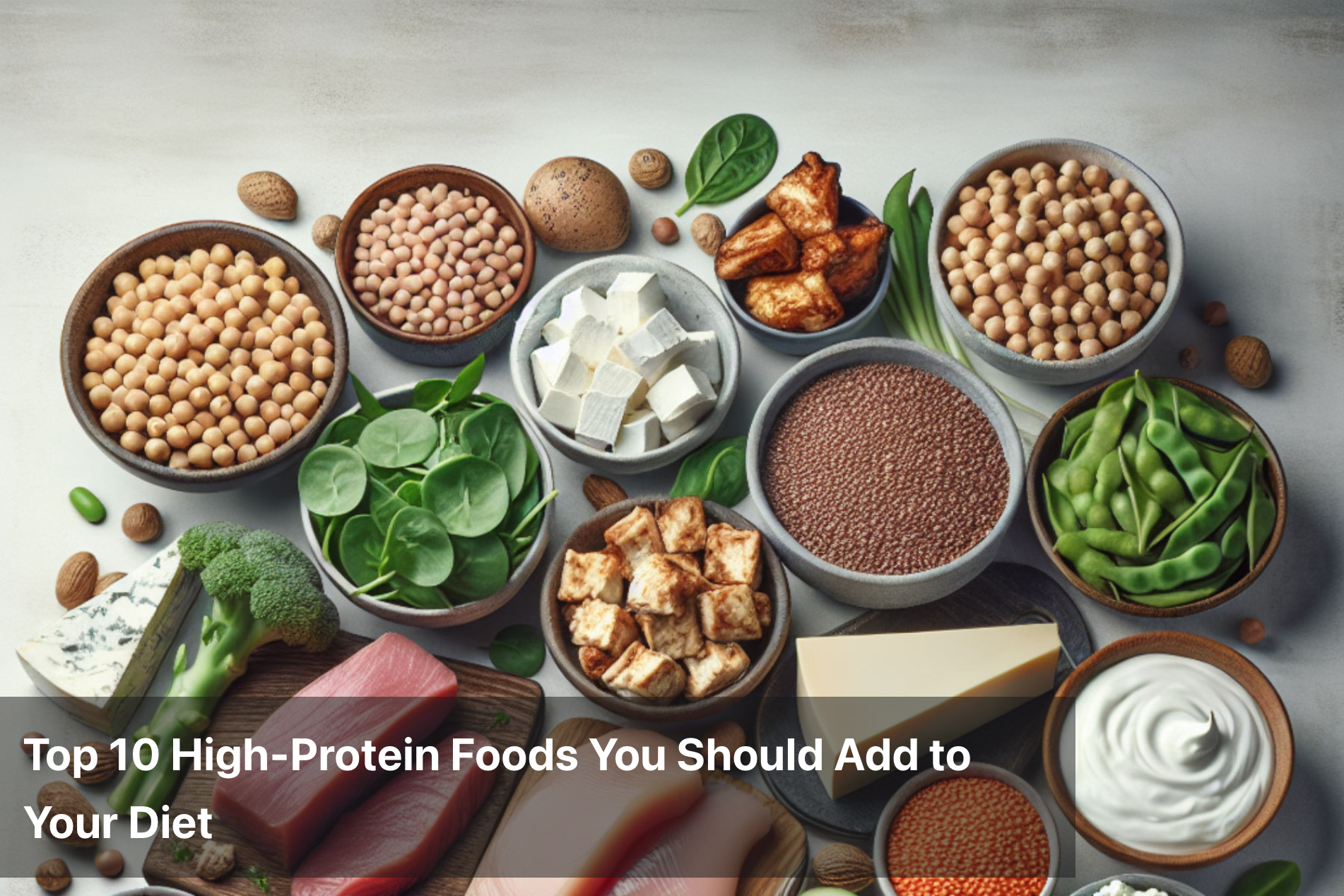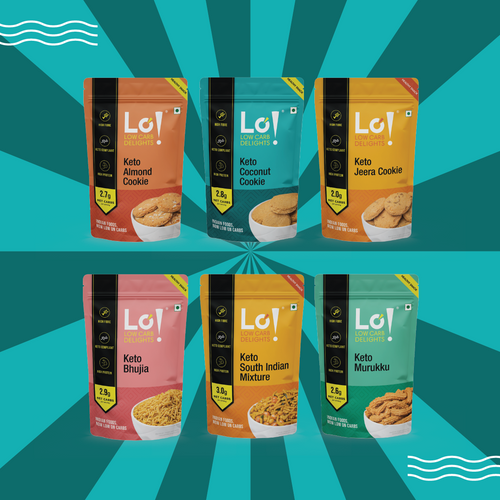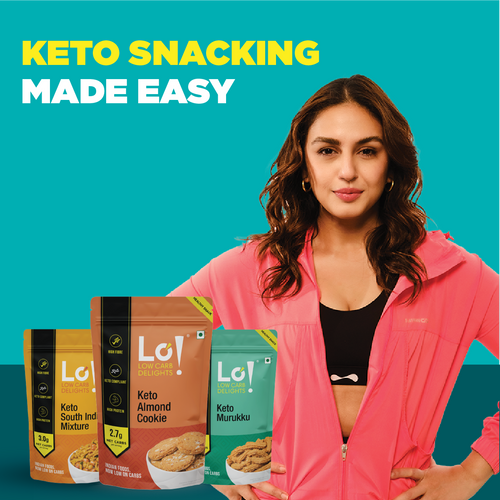
Top 10 High-Protein Foods You Should Add to Your Diet
Protein is an essential macronutrient that supports nearly every function in the human body. It plays a critical role in muscle growth, tissue repair, hormone regulation, immune health, and even the production of enzymes and neurotransmitters. For anyone looking to build muscle, lose weight, or simply maintain a balanced and healthy diet, high-protein foods are a must.
A diet lacking in sufficient protein can result in a wide range of health issues—many of which are often overlooked until they become chronic or visibly debilitating.

Understanding Protein Deficiency: Causes and Symptoms
While many people associate protein deficiency with malnutrition in developing countries, it can occur subtly even in well-fed populations. Crash diets, highly restrictive eating patterns, aging, chronic illness, and poor dietary choices often lead to insufficient protein intake.
Common causes include:
-
Consuming calorie-dense but nutrient-poor foods
-
Relying heavily on carbohydrate-based diets without balancing macronutrients
-
Age-related appetite decline
-
Vegetarian or vegan diets without proper protein planning
The symptoms of protein deficiency are often gradual and may include:
-
Muscle wasting and reduced strength
-
Frequent infections or slow wound healing
-
Swelling or fluid retention (especially in the feet or ankles)
-
Brittle hair and nails
-
Fatigue, irritability, and poor concentration
-
Increased appetite and cravings
These symptoms indicate the body is not getting enough of what it needs to repair, grow, and regulate itself.
How Much Protein Should You Eat?
Daily protein needs vary depending on body weight, activity level, age, and health goals. While sedentary adults may require around 0.8 grams of protein per kilogram of body weight, athletes and individuals aiming for fat loss or muscle gain may need between 1.2 to 2.2 grams per kilogram.
Top 10 High-Protein Foods to Include in Your Diet
Choosing nutrient-dense, protein-rich foods can help you meet your needs efficiently while also supporting metabolic health, muscle retention, and satiety.
Here are the top 10 high-protein foods that deserve a spot in your daily meals:
-
Eggs
A complete protein source, eggs contain all nine essential amino acids and are rich in vitamins and minerals like B12 and choline. One large egg provides around 6 grams of high-quality protein. -
Greek Yogurt
Thicker and creamier than regular yogurt, Greek yogurt packs almost double the protein. A typical serving offers 15–20 grams and is an excellent choice for breakfast or a snack. -
Chicken Breast
A lean and versatile protein option, 100 grams of cooked chicken breast provides around 30 grams of protein. It's low in fat and easily incorporated into countless dishes. -
Lentils
A powerhouse plant-based option, lentils offer about 9 grams of protein per 100 grams cooked. They also provide iron, fiber, and slow-digesting carbohydrates, making them ideal for vegetarians. -
Cottage Cheese (Paneer)
A popular choice in Indian households, paneer is a rich source of casein protein, which digests slowly and supports muscle maintenance. One 100-gram serving provides 11–14 grams of protein. -
Tofu and Tempeh
Made from soybeans, both tofu and tempeh are complete plant-based protein sources. Tofu provides about 8 grams per 100 grams, while tempeh offers up to 19 grams, along with probiotics and fiber. -
Fish (Salmon, Tuna, Sardines)
Not only rich in protein (20–25 grams per 100 grams), fatty fish like salmon also offer omega-3 fatty acids, which support heart and brain health. -
Quinoa
Unlike most grains, quinoa is a complete protein and offers 8 grams per cup cooked. It’s also high in magnesium, fiber, and antioxidants, making it a great addition to salads and bowls. -
Nuts and Seeds (Almonds, Chia Seeds, Hemp Seeds)
A handful of almonds gives around 6 grams of protein, while two tablespoons of chia or hemp seeds provide 4–6 grams. They also contain healthy fats, fiber, and key micronutrients. -
Whey Protein Powder
Ideal for those who struggle to meet protein needs through whole foods, whey protein is quickly absorbed and provides all essential amino acids. A standard scoop offers 20–25 grams of protein.
Sample High-Protein Day (100g Target)
Balancing protein intake across meals is key to optimizing muscle synthesis and controlling hunger. Here's a sample breakdown of a 100-gram protein day:
|
Meal |
Food |
Approx. Protein |
|---|---|---|
|
Breakfast |
Greek yogurt + chia seeds |
20g |
|
Lunch |
Grilled chicken + quinoa salad |
30g |
|
Snack |
Boiled eggs + almonds |
15g |
|
Dinner |
Paneer curry + lentils |
35g |
Why Prioritize High-Protein Foods?
Protein-rich foods not only nourish your muscles but also contribute to:
-
Satiety: Keeps you fuller longer, reducing overall calorie intake
-
Muscle Retention: Especially important during weight loss or aging
-
Metabolic Boost: Increases the thermic effect of food (more calories burned during digestion)
-
Blood Sugar Control: Helps slow the absorption of sugar into the bloodstream
Including high-protein options with every meal ensures steady energy levels and reduces the likelihood of mid-day crashes or binge eating.
Misconceptions About Protein
-
“More protein equals bigger muscles.” Muscle growth requires resistance training alongside adequate protein—not just increased intake.
-
“Plant proteins are inferior.” While some plant proteins lack one or two amino acids, combining sources (like rice and beans) can provide complete protein.
-
“Protein hurts the kidneys.” Unless there's a pre-existing kidney condition, high-protein diets are safe for healthy individuals.

Making Smarter Protein Choices
Prioritize whole, minimally processed sources of protein. If using supplements like protein powders or bars, choose products with clean ingredients and minimal added sugars. Balance protein with fiber, healthy fats, and a variety of colorful vegetables to ensure a nutrient-rich, sustainable diet.
Summary
Adding high-protein foods to your daily meals improves muscle strength, metabolism, satiety, and overall health. Whether you're an active individual, managing weight, or simply trying to build better eating habits, protein plays a central role in achieving those goals. Focus on variety—animal and plant-based sources alike—to meet your needs naturally and deliciously.
This Blog post is an initiative by Lo! Foods, to provide accurate and Nutritionist / Doctor approved information related to Health. Lo! Foods is India's leading brand for Everyday Functional Foods. Foods designed for specific Health conditions or Needs. Lo! Foods also runs India's largest range of Low Carb Healthy Cloud Kitchens, under the brand names of Lo!, ProteinChef, ATH (All Things Healthy) and DiabeSmart.















Leave a comment
Your email address will not be published.